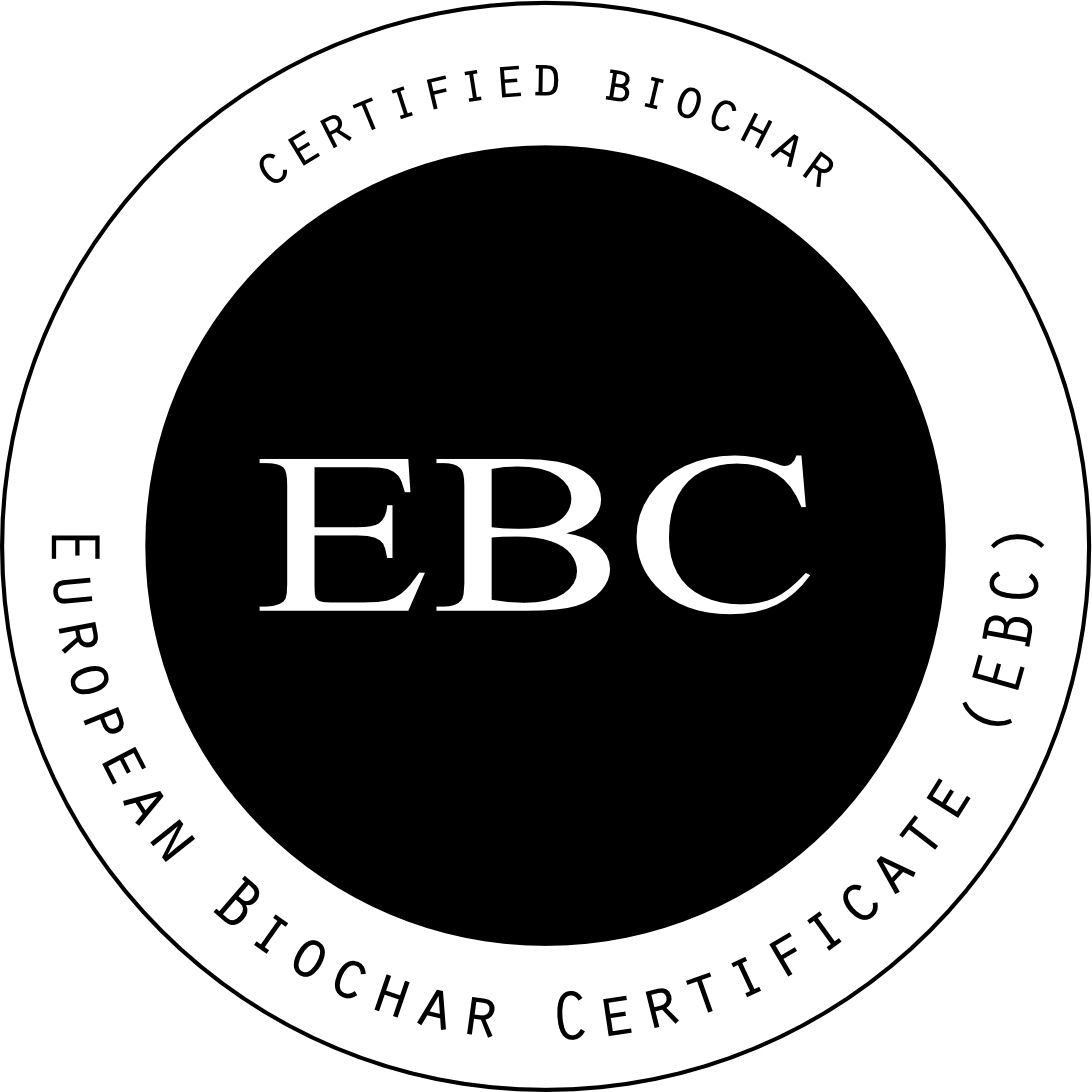
Carbon sink trader audit
From the factory gate to agricultural application or use in (building) materials that are incorporated into permanent structures such as houses and bridges, the carbon in the biochar must be tracked and all the greenhouse gas emissions that arise in the process must be deducted. This is done by a carbon sink trader accredited by the Ithaka Institute for Carbon Strategies who records the final value of the applied biochar in the EBC’s carbon sink register.
When a packaging unit of biochar (such as a big bag or container) leaves the place of production, the biochar is not yet a certified carbon sink but merely has the potential to become one.
Further emissions (e.g. from transport with fossil fuel) and partial losses (e.g. sieve fractions of the biochar that end up in a waste incineration plant via single-use products such as cat food) can arise before the biochar is finally used as a carbon sink, and these emissions must be included in the calculation. Total losses are also possible: the biochar that is delivered might be destroyed by fire, or a customer might buy it for co-firing in a biomass power plant or as an oxidising agent in steel manufacture. In all these cases the carbon would be re-released into the atmosphere as CO2, thereby removing the carbon sink.
The biochar becomes a permanent and therefore certifiable carbon sink only at the point at which it can no longer combust. Biochar cannot be regarded as a long-term terrestrial carbon sink with a mathematically definable degradation rate until it is incorporated into livestock feed, ends up in the soil after use as animal litter, as a compost additive or as part of similar substrates, or becomes a component of concrete or similar non-combustible composite materials.
Your carbon sink trader is certified annually by Carbon Standards International AG.
BasisGuidelines on certification of the carbon sink potential of biochar
Contact person
 Ueli Steiner
Ueli Steiner

